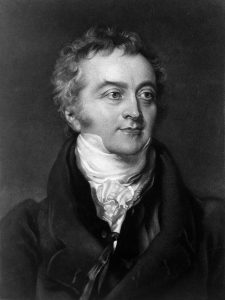Welcome to our blog!
Welcome to our new blog series from the Institute for Molecular Science and Engineering!
Although our Institute’s name might seem quite niche and specific at first, the relevance of our work on society is anything but. Through this blog, we hope to bring you some of the stories of how our approach can revolutionise the 21st century, and has done so already in previous ones. How can we make the fashion industry more sustainable? Does the Philosopher’s stone already exist? These are just some of the questions we hope to address.
In our first outing, we hear from our Co-Director on how the ethos of our Institute was inspired.
By Professor Nic Harrison, Co-Director of the Institute for Molecular Science and Engineering
In his wonderful biography of Thomas Young, The Last Man Who Knew Everything, Andrew Robinson points out that Young was a polymath who Proved Newton Wrong, Explained How We See, Cured the Sick, and Deciphered the Rosetta Stone. In my own work his contributions to understanding light, colour, the strength of materials and fluid flow are of everyday importance. It seems that two hundred years ago it was truly possible to know everything. I can’t think of a true polymath alive today. Scientific and technical knowledge has expanded at such a rate that specialisation is now the norm. We develop our collective understanding at an ever growing pace while dividing science into disciplines and subdisciplines so efficiently that we often struggle to fund, motivate and reward interdisciplinary or multidisciplinary projects.

Credit: Wellcome Library, London.
Nevertheless, it seems that rapid innovation happens most efficiently at the nooks and crannies between our self imposed boundaries. For example, if we are to produce a vaccine, an antiviral agent or an anti-viral surface in a crisis we need to form teams of experts who can provide the deep expertise in areas ranging from molecular synthesis to distributed manufacturing: teams that can communicate, collaborate and thrive.

At Imperial College London we have a track record of doing exactly this and also a recognition of how hard it can be in our world of intense specialisation. The Institute for Molecular Science and Engineering was founded to help define and develop Convergent Science. We don’t want to wind the clock back two hundred years yet we do realise that we have lost something important along the way. Students who have achieved core expertise are now also being educated in molecular science, engineering, business and clinical application. They are learning the value of being able to reach across traditional disciplinary boundaries. New large scale research programmes are emerging that are designed from the ground up to be inclusive and to merge the best that can be offered from all perspectives in addressing global challenges.
The spirit of Thomas Young lives on in our Institute and a new generation of polymaths. You can find out more about the work we do by visiting our website www.imperial.ac.uk/imse.